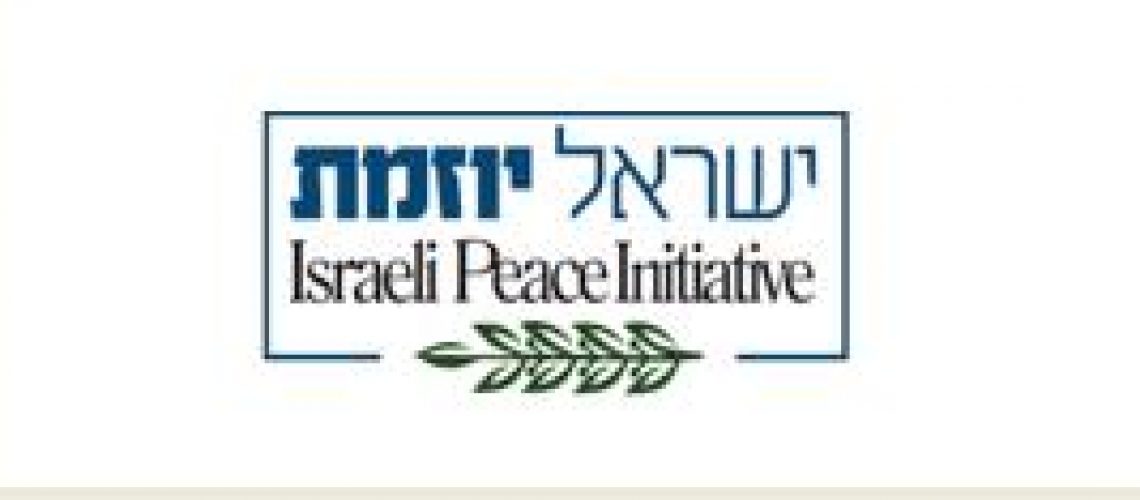(Note from the editor: The Israeli Peace Initiative (IPI) was released in 2011 as a response to the Arab Peace Initiative (API) of 2002, which provided terms for an Israeli-Palestinian peace agreement that would also include recognition by the Arab world. The IPI was initially signed by leading Israelis including former Shin Bet, Mossad and IDF chiefs, former ministers and Yuval Rabin son of slain Prime Minister Yitzhak Rabin.)
Dear Friends of the Initiative,
We are pleased to share with you the latest update on the IPI Group. This update is shared with you following dramatic changes in the region, which further convinced us that we should focus on promoting our regional perspective. In particular, we see that Israel and several key Arab states have shared interests, shared concerns and shared threats – including Iran, the Syrian situation and terrorism. We think that these shared concerns present an opportunity to create a regional scheme of gradual progress towards resolving the Israeli-Arab conflict and achieving regional stability.
In July 2013 we were pleased to hear that Secretary Kerry announced the resumption of Israeli-Palestinian talks. In the months that led to this announcement, we focused on contributing to the resumption of the talks, and claimed that the talks will become feasible only through a regional framework. In particular, we focused on:
- Advocating an Israeli regional strategy as a response to the API, showing the security benefits of a regional approach.
- Ensuring a political safety net for Prime Minister Netanyahu in case he makes progress.
- Creating a special Knesset Caucus.
- Offering a regional framework for the talks, following Track-2 meetings and a joint effort of Israelis and Arabs who together highlighted the benefits of regional involvement and the central role of the Arab Peace Initiative.
- Highlighting PM Netanyahu’s change of tone – especially in his noting the demographic threat over Israel if the two state solution is not achieved, and his commitment to achieve an agreement that ends the Israeli-Palestinian conflict.
- Showing that 69% of Israelis support an “end of conflict” agreement based on API.
- Showing that PM Netanyahu would win an undisputed majority if he were to present the solution to the Iranian nuclear threat as the prize in return for tough concessions required to reach a permanent status agreement with the Palestinians.
We believe that Israel’s best interests is to create a linkage formula that we label as “ECO = EOT”; what we mean by these acronyms is that in return for the concessions required to reach the End of Conflict permanent status agreement, Israel should be guaranteed a solution for the Iranian nuclear problem – i.e., End of Threat. We think that the two efforts are also linked – as their clocks are synchronized to reach the “moment of truth” some time by mid-2014.
In view of our regional perspective, we were very pleased to see that the Arab states provided the necessary “support umbrella” and encouraged President Abbas to make progress. Our strategic goal for 2013-2014 is to ensure that current talks lead to an “End of Conflict” agreement, and that 70% of Israelis will accept it.
We therefore focus our efforts on three dimensions:
- Encouraging Israeli leaders to reach an “end of conflict” agreement despite painful concessions, as part of a regional strategy to guarantee the security of Israel.
- Convince Arab states to reassure Israelis through psychological “game changers.”
- Convince skeptical center-right Israelis to support an “end of conflict” agreement.
We will be happy to share with you how we make progress on these. Our major focus is to convince Israeli leaders and the Israeli public that tough decisions can be justified as they bring significant security benefits to Israel.
In addition to our 360-degree promotion of our regional approach, we are also making progress on another interesting front – the digital media opportunity and our project Jusur (“bridges”). As part of our efforts to do outreach to Arab societies, we started to build our Facebook page as a “trilingual” page. We are making every effort to translate every post to Arabic, English and Hebrew – and we have been pleasantly surprised that we now have fans from Israel (about 45%), from the entire Arab world (45%) and the rest of the world (about 10%). Expectedly, we were attacked by many hate-mail messages and tough language messages. Yet the number of positive responses and comments overwhelmingly exceeded negative responses! We decided to expand this effort because it serves two purposes – first, it shows the Israelis that there are many like-minded people in the entire Middle East region; and second – we send a clear message to our neighborhood that there are many Israelis who wish to see the end of the conflict. If you wish to learn more about our Facebook activity please refer to the following address https://www.facebook.com/IsraeliPeaceInitiative.
In summary, in the next 6-9 months we should focus on implementing a strategy that leads to both EOC and EOT – as we explained above. We believe that achieving both parts of the formula is in the best interest of Israel, the Palestinians, the Arab states and international community.
Best regards,
Koby Huberman for the IPI Team

